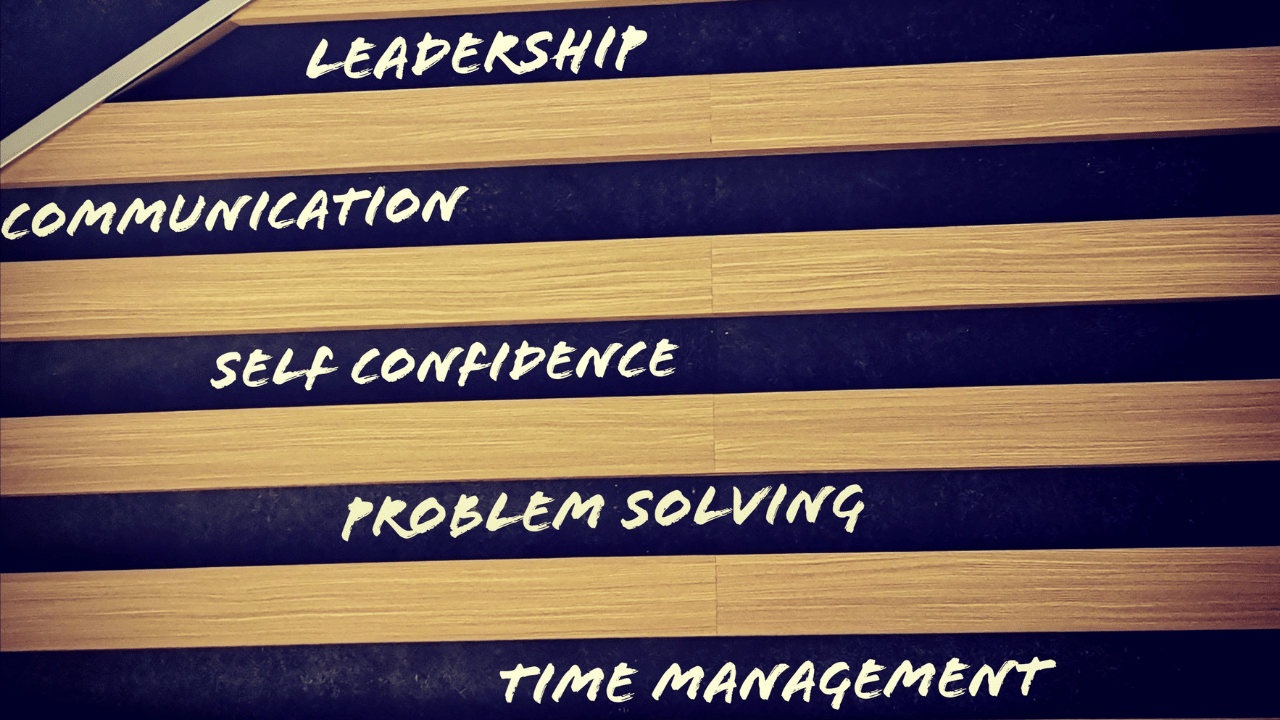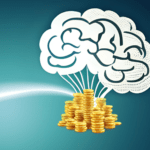
What Are Soft Skills – Accelerate Your Career by Developing These
Soft skills will leapfrog you ahead of the flock and offer a wide range of benefits that extend beyond the professional realm.

Your technical or hard skills might get you noticed — whether it’s a new job, a business deal, or backing for your own venture — but it’s the “soft skills” that make you standout and leapfrog your opportunities.
They are the attributes that make you an irreplaceable asset to every organization and individual.
And for years, soft skills were either entirely overlooked or grouped into the non-integral “nice-to-have” category – across many industries. Technical fields like scientific research or software development particularly relegated these to the back burner. But in the modern workforce, that viewpoint has changed. In fact, soft skills are often what get you ahead of your competition and actually secure the deal (employment, partnership, venture, whatever). Then they accelerate your upward trajectory.
Consider, a recent survey by Indeed, which asked 1000 hiring managers to rate the key skills possessed by their top performers. The top of the list attributes were:
(1) Problem-Solving; (2) Effective Communication (3) Self-Direction; (4) Drive/Motivation; (5) Adaptability
All of these fall into the soft skills bucket. So exactly what are soft skills? Let’s break that down.
What are soft skills?
Soft skills are all the non-technical skills that are imperative in driving your own performance and your success in dealings with others. I like to break it down into two broad arms.
(a) Your self-driving skills. These include your motivation, ambition, ability to carry out and execute projects to completion, manage your time and resources well, deal with crises or setbacks with grace, and effectively problem-solve.
(b) Your interpersonal skills. These days, we’re often working in teams, on external client calls, or managing others in our vertical — all of these require you to engage effectively with others. Whether they are peers, employees, partners or clients, you need to have a plethora of skills in place to collaborate, lead, and influence others well. This usually comes down to your Emotional Intelligence and your Communication.
We talk about a roadmap for building your Emotional Intelligence (also called EI or EQ) here.
Communication can be broken down into your ability to actively listen, convey the right message depending on the audience, and incorporate nonverbal strategies such as body language and eye contact. A lot of this involves the striking the right balance of allowing others space to be their best (for example, the best brainstorming occurs in a judgement free climate) and taking a more assertive role to get the job done to the end.
As you can see, soft skills span a range of critical skills. I’ve never been been a fan of the term “soft” as it implies these are less coveted or essential. But the opposite is true. Not having them will be a deal breaker at some point, while developing them will set you apart from the flock.
Though soft skills are not as easy to methodically cultivate as technical prowess, they are well worth the resource investment. Indeed, the benefits even blossom beyond the professional realm and into your personal life.
What are the benefits of soft skills?
Investing in learning soft skills has long term benefits. Whether you are negotiating a contract or networking at an event, your retinue of soft skills will influence your interactions and efficacy.
According to a recent study, about 75% of your career success is dependent on your soft skills and only 25% on technical skills.
Here’s just a few of the many benefits of acquiring these most in-demand skills.
#1 – Boost Productivity
This is one of the benefits of having great self-drivers. Category (a) above. Many of us are excellent at starting projects, but to finish them into completion is another story. Execution requires that you are an excellent self-motivator, you have a positive attitude even when setbacks occurs, and that you are next-level when it comes to time management. None of this is easy when projects are complex.
Our dopaminergic system rewards us for starting new challenges, but it doesn’t keep that going for finishing existing ones. Until we train it. This is not straightforward, but the brain is highly adaptable to our habits. We can reshape it.
#2 – Stronger Leadership
Soft skills create great leaders. Your self-driving skills set the example for those around you. And your interpersonal skills will inspire those under you to improve their own EQ and communication. For instance, if your employees see you listening and incorporating feedback, they will do the same. They will be more apt to take ownership of problems that arise and come up with a viable resolution.
Your soft skills will set the tone for the culture and morale of your team.

#3 – Genius Solutions (Extraordinary Problem-Solving)
While problem-solving itself is a soft skill, genius or out-of-the-box solutions for even rote issues are what create breakthroughs in every industry. The more you work on your soft skills, the more cognitive bandwidth you have for creativity. Creativity is all about the unexpected. It relies on integration of right and left brain hemispheres, and it hinges on excellent stress management of the everyday.
Even being able to recognize risks or potential concerns, and finding a way to implement solutions proactively is the domain of your soft skills. Every organization thrives on those employees who are able to problem-solve in extraordinary ways.
#4 – Better Teamwork and Efficiency
A high-performing team is one that works as a cohesive unit. This only happens when 1- they see it in action and feel supported from top-down; and 2- when each team member works to cultivate their own soft skillset. This takes more than good communication — or even EQ — it requires each part of the team to go back and execute on their part of the shared objective.
Soft skills are what turn your organization’s vision for tomorrow into reality.
Teams are the backbone of the organization. Think of soft skill development like working on your core strength. When it improves, your whole body (in this case the whole organization) benefits.
Tips on How to cultivate soft skills
The above are just a few benefits of the many that soft skills offer. Here are a few tips for getting started on cultivating these essentials.
- Have a learning or growth mindset
Know that you are never too old to learn something new. Soft skills like resilience, emotional intelligence, and agility will impact your professional and personal life. Growth mindset hinges on learning from setbacks instead of giving up.
- Align soft skill development with your business goals and work culture
At organizations with the best employee satisfactions, interpersonal and self-driving skills are valued and their development is something that the organization is keen to invest in — especially for existing or potential leaders.
- Be open to feedback
If you are seeking to improve your soft skills, it’s essential to accept constructive feedback. Also, take the time to observe your strengths and identify areas that are ripe for development. Try not to take criticism negatively even if the approach could be better. A key realization is to know you are not static. Incorporate feedback like any data and allow it to feed your ongoing transformation.
- Do Professional Training, Course, or Coach
I’m partial to this because I know that a top-notch program will dramatically change your trajectory. Sometimes we think we should figure everything out ourselves, but if there are methods and roadmaps that work, there is no sense in doing things the hard way. Working a system can be life changing and prioritizing self-development is key. Otherwise you’ll always be spending your energy putting out pesky “fires” – essentially you’ll keep doing what you’ve been doing because you won’t have the internal resources or bandwidth to do anything new. Especially for those on a leadership path, training will radically shift your paradigm, perception, and perspective.
CREATING MOMENTUM WITH PRACTICE
Both hard skills and soft skills are important for a successful career. Many professionals frequently engage in continuing education to sharpen their technicals skills and to keep up with trends and new data. We should aim to do the same when it comes to soft-skills rather than viewing our present traits and abilities as fixed. Start devoting a few hours a week to this and the impact will be a game-changer.
Remember, right there is the key to making it all work. Your implementation — your action. Once you get going, you’ll feel no desire to turn back. You’ll experience value across the board.
Next steps to consider
We help you learn all of this and more in our groundbreaking neuro-performance programs.
This 12-week transformation profoundly benefits every aspect of your life: career, daily performance, health, wellness, cognitive function, habits, relationships, energy, emotional growth, and beyond. That’s because unlike any other program, we focus on the brain - the root of all change.
Unlocking your full potential is about learning, knowing, and transforming into your highest self. Our trainings help you unleash yours. Explore our programs now.
Join our Alive Mindful Optimist Newsletter
Receive our Modern Day Stress Warrior Series & Mindfulness handouts as our gift to you.










